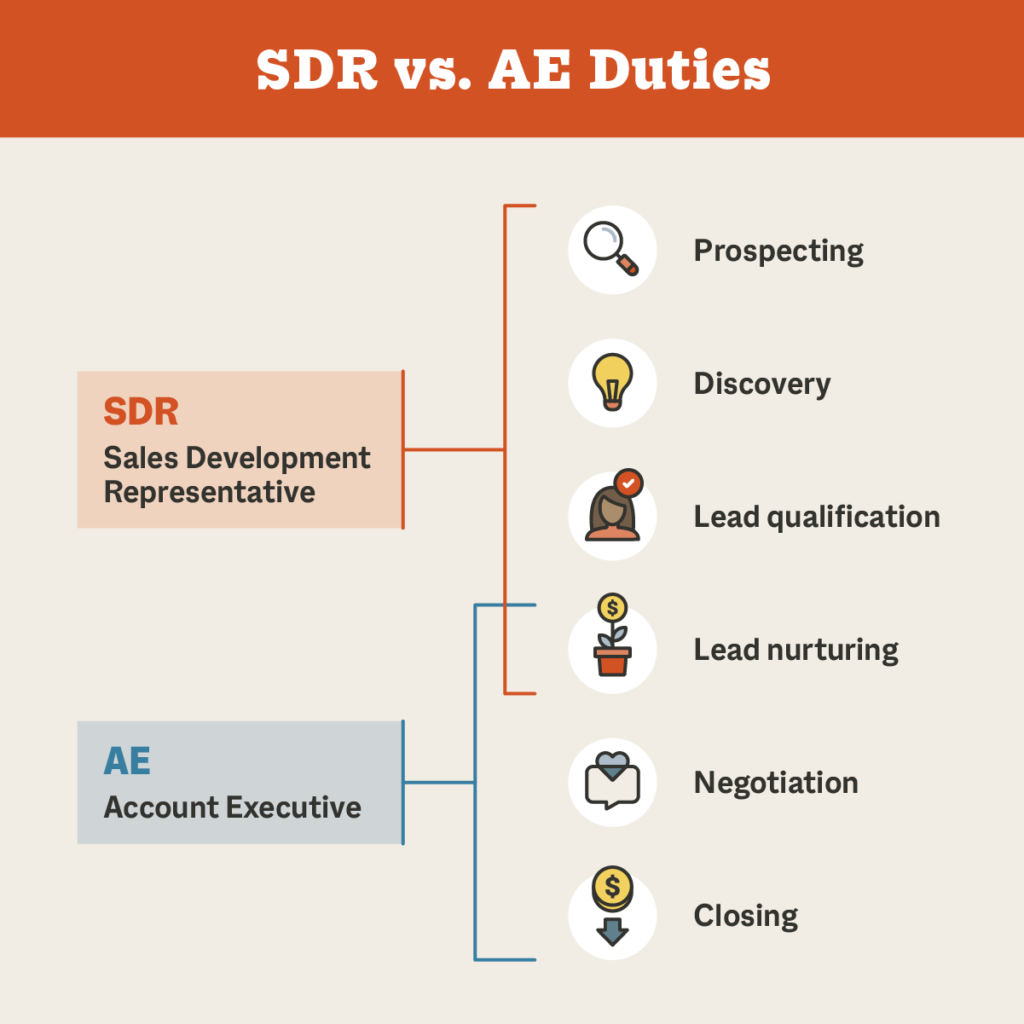
Identifying and selecting law enforcement recruiters
This is Recruiting is Sales, a blog exploring law enforcement recruitment as a sales function. This is the second in a three-post series on building and equipping your recruiting team to produce the results you need. In our first post, Building the Right Team, we explored the foundational necessities of effective recruitment, ranging from proper placement in your org chart to unit structure and allowing your team members to play to their strengths. Today we will take a closer look at what makes an effective salesperson and how to select the best individuals for each position on your recruiting team.

Jim Collins, author of Good to Great: Why Some Companies Make the Leap… and Others Don’t
There are many salespeople in the world and most, by definition, are average. Countless combinations of personality traits and experiences can create effective salespeople and recruiters, but the data shows top performers tend to have certain things in common. Building a top performing team requires a more in-depth selection process with key characteristics you should be looking for.
“As American law enforcement agencies grapple with issues surrounding recruitment and retention, an increasing number see mentoring as part of the solution.”
–The Community Policing Dispatch, April 2023, Volume 16, Issue 4
As a rule, people involved with recruitment should be experienced both within law enforcement and your agency. When candidates speak with a recruiter, they are looking for accurate information on the profession, the agency, and the law enforcement lifestyle in general. They need a mentor to counsel them as they work through their own decision-making processes.
Without time on the job, a recruiter will not have the knowledge and experience necessary to meet these needs. This does not, however, mean new officers have no place in recruiting. Rookie officers will not have the same depth of knowledge, but their ability to relate with candidates closer to them in age, as well as the recency of their own recruiting and hiring journey, will make them extremely effective relationship builders. Consider including a newer officer to provide a different perspective on the recruitment process and to raise the overall performance ceiling of the team.
“…[L]aw enforcement leaders must determine how millennials and post-millennials differ from past generations and adapt their recruiting and hiring efforts, leadership styles, policies, and systems accordingly.”
– Dr. Nicole Cain, Recruiting and Hiring the Next Generation of Police Officers
Sales is about volume and requires drive, initiative, and organization to succeed. An effective sales professional knows how to structure their time, their workload, and their processes to maximize results and recruiters must do the same. All recruiters need to have a strong work ethic with a history of innovation and high self-initiated activity. Passive recruiting no longer works. Select hunters who are goal oriented and who will put in the time and effort necessary to drive results. And remember, the best predictor of future behavior is past behavior. Take a look at these blog posts from The Muse for more information on work ethic and how to look for it during a selection process.
“Learning how to communicate more effectively with people who have different communication styles than you will lead you to more prospects, more productive discussions, and more sales… Sales is two or more individuals communicating with each other, trying to discuss what the issues are, and then discussing potential solutions to those issues from the seller’s [perspective].”
– Jonathan Farrington, Why Better Communication Skills Lead to More Sales Success
Your recruiters need to be skilled communicators with the emotional intelligence and cultural competency necessary to recruit candidates from diverse backgrounds. Everyone who has worked the street knows not all officers are built the same, particularly when it comes to communication skills. You know the most effective communicators in your department, the masters of de-escalation, building rapport, and gaining consent. These officers are highly sought after and efforts should be made to include them on your recruiting team.
Emotional intelligence is critical in both law enforcement and sales. Emotional intelligence, or the ability to recognize and manage both your own emotions and those of others, is a key factor in separating top performing sales professionals from their peers. High emotional intelligence gives sales professionals the resiliency to deal with “the grind” and frequent rejection that comes with a sales role. In recruiting, emotional intelligence will help recruiters navigate the complicated narrative surrounding law enforcement today and enable them to respond to candidate questions and concerns in mature and effective ways.
“Without emotional intelligence, salespeople will struggle to build rapport with prospects and stay motivated… In fact, decades of research identify emotional intelligence as the critical trait that differentiates top performers from the rest of the sales force.”
– Michael Ferguson – Sales Hacker, Tapping Into Your Soft Side with Emotional Intelligence in Sales
Law enforcement recruiters cast a wide net, recruiting within communities of all types and cultures to locate the best candidates for their agencies. Cultural competency, or the ability to effectively and respectfully work and build relationships with people of different cultural backgrounds, is needed if recruiters are expected to identify and pursue the most qualified candidates; after all, recruiting is a relational process. A recruiter who cannot find common ground on which to build with candidates of all types and backgrounds will hold your unit, and your agency, back.
Regardless of their role, no recruiter will be effective without a strong work ethic, confidence, initiative, well-developed communication skills, emotional intelligence, and cultural competence. Make these your “deal-breakers” and prioritize them ahead of any other characteristics discussed here. Secondary characteristics to look for will depend more on the role you are looking to fill on the team.
“People would rather do business with a person they like and trust than someone they don’t, even if that person is offering a better product at a lower price.”
– Harvey Deutschendorf, Why Emotionally Intelligent People Are More Successful
In our previous post, we looked at different unit structures and how they can define roles and enable the team to leverage individual strengths. Recruiting roles can be broken into two categories: developers and closers. Developers are going to handle the initial outreach and qualifying of candidates while your closers use ongoing personal engagement to shepherd them through the decision-making and hiring processes.

–What is a Sales Development Representative, Smith.ai
Your developers will be responsible for crafting your messages and getting them in front of the right people at the right time in addition to qualifying potential candidates to ensure they meet minimum standards. They will be focused on your web presence, social media platforms, live events, and collateral and their interactions with candidates will typically be short lived and transactional. These are great roles for part-time recruiters since you’ll likely want full-time team members as closers.
Developers need to be high-energy and able to generate a high volume of work. When selecting a recruiter for a developer role, keep their focus in mind. If they will be tasked with managing your online presence, they need to be familiar with social media platforms, current trends, and have the creative writing skills necessary to craft effective messages for your target candidate pools. Developers focusing on in-person events must look sharp in uniform and be outgoing. They will need to be in front of your table, drawing potential candidates in using charisma and presence, and be comfortable public speakers able to deliver your sales story in a concise but persuasive manner.
“As technology changes, law enforcement must change with it. Old recruitment methods… are not the best ways to reach younger generations. Instead, recruitment efforts targeted toward younger generations should account for the social and consumer behaviors of their target recruitment demographic and leverage the most appropriate method, technology, and platforms.”
– DOJ, Law Enforcement Recruitment and Retention Working Group (2021)
Closers will be your relationship builders and mentors and, as such, experience is particularly important in this role. They will use frequent personal engagement to get to know candidates and to help candidates get to know your agency. They will overcome objections, respond to concerns, and ultimately facilitate the handoff from recruiting to backgrounds and hiring. Closing is a relational process and will be more time consuming, so full-time recruiters should fill these positions whenever possible.
When selecting a recruiter for a closer role, organization is key. Closers need to manage candidate engagement like a detective managing a heavy caseload. If the recruiting supervisor has a lot of other responsibilities on their plate, program management skills become critical as your closer will end up coordinating recruitment efforts across the unit as well. This is a time-intensive process that requires the proper tools to do effectively and efficiently. Closers will need systems to track and engage with candidates, as well as clear channels of communication between themselves, developers, and background investigators. We will cover this in more detail in the third post of this series, The Right Tools for the Job.
“[I]f they get the right tools, recruiters can start building the foundations of a relationship that can start paying dividends for the business and for the candidate, too. They’re likely helping retention figures – by being the first point of contact in a hopefully beneficial relationship and showcasing the best of the culture…”
– Dan Cave, Making the Shift From Transactional to Relationship-Based Recruiting
In sales hiring, establishing an effective screening and interview process is especially important since sales performance largely depends on “soft skills” that are difficult to quantify. It typically takes multiple interviews to properly assess an applicant’s skills, aptitude, and experience and if not managed properly this can take a long time. Planning a structured interview and assessment process is key to keeping things moving efficiently and ensuring it is both repeatable and equitable for all candidates.
The CloserIQ sales blog lays out their preferred interview framework, a multi-step process including phone screening, multiple interviews, a mock pitch, and more, all designed to be completed within a 2-3 week timeframe. This is a great process easily adapted for law enforcement recruiting.
When selecting your recruiters, start with an initial conversation between candidates and the recruiting supervisor. Use this conversation to give the candidate an overview of the unit and your vision for recruiting moving forward. Go over the remainder of the process and let them know they will be expected to perform two practical scenarios during subsequent interviews:
-
-
- Providing a 3-minute sales pitch on the benefits of working in law enforcement and at your agency; and,
- Responding to questions and objections recruiters get from candidates and at events, including questions on the challenges associated with a career in law enforcement as well as the ongoing national narratives surrounding specific police events, police reform, and related issues.
-
Do not let the call branch into their responses, this is simply letting them know what is coming so they can prepare appropriately. In this call you are evaluating the candidate’s phone presence and whether they have proactively researched recruitment and relevant topics.
“When you ask a job candidate behavioral questions, you should get a response that not only answers the questions but demonstrates their abilities and potential. You want to hear an answer that shows exactly how their skills were put into action and what type of results it achieved. You also want to look for a level of self-awareness that shows the candidate is able to analyze their own past.”
After the initial call, plan on having two in-person interviews in front of the recruiting supervisor(s), a tenured member of the recruiting team, and at least one representative from command staff. It is important that the same panel conduct all interviews so members can make informed recommendations for each candidate. I highly recommend using a grading rubric to ensure consistency and that each candidate is evaluated for the competencies you are prioritizing for the role.
The first interview is to assess the candidate’s strengths, weaknesses, experience, and understanding of modern law enforcement recruitment. Identify the most important characteristics for the role you are filling and then prepare questions designed to give you insight into that aspect of each candidate’s personality and experience. Your questions should provoke specific answers and direct candidates to recount relevant examples or situations from their past. For example, a question designed to evaluate time management skills could ask candidates to describe, with examples, how they manage their time and responsibilities when their workload is high and they have competing priorities.
Prospects today are busy and rarely give salespeople open-ended meetings in which to make their pitch. As such, time and conversation management is critical and salespeople must be able to adapt. Recruiting is the same in that success will heavily depend on effective time management and the ability to control conversations with potential applicants. Set a hard-stop for the interview and let the candidate know they are responsible for ensuring all questions are answered within that time frame. A common pitfall of recruiting and sales is spending too much time talking and too little listening. This will test candidates’ ability to listen closely to questions and provide concise answers while tracking time and managing the flow of the interview.
“Balance advocacy with inquiry. Yes, you need to convince the buyer to buy, but you also need to learn what will make them buy. Go into sales conversations with this mantra, and emphasize the word ‘balance.”
– Jessica Helinski, Talking Too Much: Why You Do It and How to Stop
In the second interview, the previously mentioned scenarios, where candidates provide a 3-minute sales pitch then respond to questions and objections, are conducted. A common exercise in sales team development involves writing and refining your value proposition or sales story. The first scenario is designed to test the candidate’s ability to create a sales story that fits within the time constraints they will face while working events and during initial conversations with candidates. Recruiters need to have a strong yet concise value proposition in their hip pocket and ready to go. This will also help you assess public speaking skills, time management, and initiative as without research and preparation most people will find this surprisingly difficult.
Once they have made their pitch, panel members will work through a list of pre-written objections and questions about current events and the national narrative surrounding law enforcement. Recruiters will be asked to respond to questions surrounding current events, criticisms of law enforcement, high profile uses of force, and much more. It is critical they understand that, in that setting, they are not speaking as individuals but as representatives of your agency. Approach this head-on and assess their ability to provide substantive and tactful responses and provide coaching when appropriate.

Abstract Creative concept vector background for Web and Mobile Applications, Illustration template design, business infographic, page, brochure, banner, presentation, poster, cover, booklet, document.
Building a top performing recruiting team is a complicated task that requires planning to do properly. As you define your recruiting processes and roles, you will be able to start building a selection process that will ensure you have the right people in the right seats. Establish your deal breakers early on and stick to your guns. Properly staffing your recruiting team will be the key to building a high-performance, low maintenance unit that will fill open positions and overcome today’s recruitment challenges.
Let us know what characteristics you have found most effective for law enforcement recruiting as well as how you handle your selection process. Our next post, The Right Tools for the Job, will go over the recruiter’s toolbox and the use of technology in recruiting.

